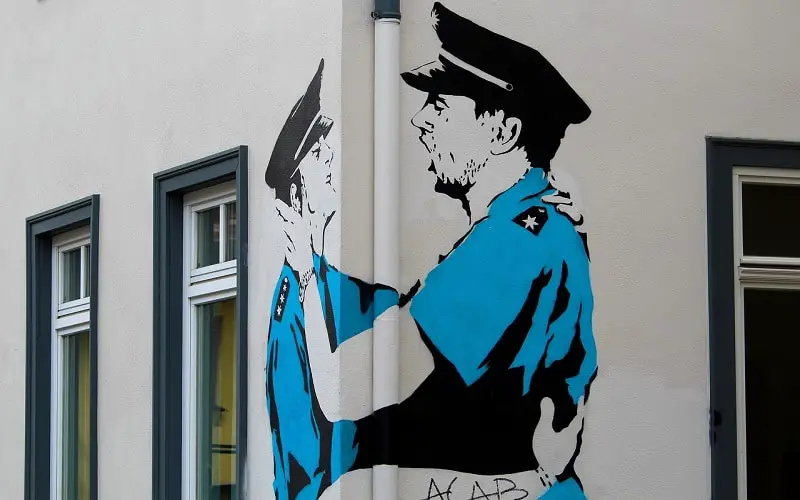Correctional officers supervise inmates and ensure they are secure and safe. When hiring a correctional officer, the interviewer tests various areas including behavioral, physical, and mental aspects. If you have an upcoming interview for this job, we have done the legwork for you. Review our top 20 correctional officer interview questions and answers.
1. Tell Us About Yourself
This is usually the first question and the interview manager wants to hear a summary of things that make you the right candidate.
Tip #1: State your qualifications, abilities, and experience
Tip #2: Prove that you are qualified for this job
Sample Answer
I am a graduate of the Massachusetts Institute of Technology. I have worked as a correctional officer for three years. During this period, I have mastered the responsibilities of this role. I can oversee inmates effectively and enforce the set regulations. Besides, I can influence people to make wise decisions and lead better lives.
2. Why are You Interested in This Role?
This question examines the reason why you want to work as a correctional officer
Tip #1: State what you like about this position
Tip #2: Show that you are passionate about the position.
Sample Answer
I have always enjoyed working as a correctional officer. I have excellent leadership, judgment, and problem-solving skills. I feel that I have the experience and skills needed to help people change their behavior and lead meaningful life. Besides, I am ready for new challenges in this profession.
3. What are The Qualities That a Correctional Officer Should Possess to Be Effective?
This question explores the qualities of an excellent correctional officer
Tip #1: Highlight qualities that an effective officer should have
Tip #2: Demonstrate that you know qualities that can make you successful in this role
Sample Answer
An excellent corrective officer should have good judgment, problem-solving, and decision-making skills. He/she should have excellent negotiation skills to resolve a conflict and be self-disciplined to avoid being overcome by emotions when confronted with an inhospitable situation
4. Describe Your Daily Routine as a Correctional Officer
The interviewer intends to understand the duties of a correctional officer
Tip #1: Highlight the daily routine of a correctional officer
Tip #2: Be confident and eloquent
Sample Answer
I assign inmates duties, patrol the interiors and exteriors of the facility, inspect visitors and incoming packages, and give instructions on how to perform new tasks. I also conduct cell searches, write incident reports, and monitor inmates and the surroundings using surveillance cameras.
5. Have You Ever Committed a Crime?
This question is meant to assess whether you have ever been involved in a crime.
Tip #1: State whether you have ever committed a crime
Tip #2: Be honest with your answer
Sample Answer
I have never committed a crime. I was raised by religious parents who taught me to be honest right from childhood. I also learned how to respect others and their property.
6. What Physical Training Have You Done to Prepare for This Position?
The interviewer wants to know whether you can meet the physical demands of this role.
Tip #1: State that you’re physically fit to undertake this role
Tip #2: Mention the training you have undertaken
Sample Answer
I am well-prepared to undertake the fittest because I’m in good physical shape. I have participated in CrossFit events every week for the past six months. Additionally, I run an average of 7 miles every week.
7. Describe Briefly About Your Correctional Officer Experience
This question explores your experience in this field
Tip #1: Highlight your skills and experience as a correctional officer
Tip #2: Show that you are competent in the penitentiary officer field.
Sample Answer
I have a degree in guidance and counseling and have over five years of experience as a correctional officer. I have gained all the relevant skills required for this job. I can handle any situation that revolves around this field. I have excellent communication and judgemental skills; hence I offer exceptional work.
8. Do You Get Along With Other Colleagues?
Here, the interviewer aims to understand whether you can maintain healthy relationships with other correctional officers.
Tip #1: State how you relate with your colleagues
Tip #2: Prove that you get along well with other colleagues
Sample Answer
I get along well with my colleagues. I ensure to be supportive and maintain a positive attitude at work. I do so when assisting a colleague who is overwhelmed or when listening to coworkers who are having a bad day.
9. What Major Challenge Did You Face In Your Last Role? How Did You Handle It?
The interviewer seeks to know the challenges you encountered in your previous position
Tip #1: Explain the difficult situations you encountered
Tip #2: Be calm while answering the question.
Sample Answer
I encountered very hostile inmates who could not take corrections positively. They were insulting and assaulted me to the extent of throwing some fluids into my face. I was called all sorts of names. However, I did not allow my emotions to take control of me; instead, I persisted and was patient with them until I started seeing some positive changes in them.
[VIDEO] Top 20 Correctional Officer Interview Questions with Sample Answers: ► Subscribe for more useful videos
10. How Will You Handle Confrontation and Aggression Associated With This Role?
The interviewer wants to test your ability to remain calm and handle volatile situations.
Tip #1: State how you handle aggression and confrontations
Tip #2: Prove that you can remain calm in challenging situations
Sample Answer
I make sure to treat everyone decently and with respect. When inmates become aggressive, I remind them about the protocols that they should stick to. If hostile behavior is exhibited, I restrain the hostile individual from avoiding any harm to others or damage. I will also seek support from colleagues if help is needed.
11. How Do You Stay Motivated at Work?
The interviewer wants to understand what motivates you to keep working
Tip #1: Explain the things that inspire you as you work
Tip #2: Be eloquent and straight to the point
Sample Answer
I love encouraging inmates to go back on track to succeed in life. I make use of my skills and strengths to ensure the sentenced individuals are willing to change. I love giving hope to them when they feel like giving up. I always show them the meaning of life by encouraging them to live positively.
12. Can You Control Yourself Physically When Called Upon to Help Resolve Issues?
This question is asked to test whether you can subdue a violent inmate or break up an altercation without harming inmates.
Tip #1: Mention that you resolve issues without harming inmates
Tip #2: Demonstrate confidence in your physical ability
Sample Answer
When called upon to break up fights, I do so without getting hurt or hitting another person. In my previous role, I was called a peacemaker because I always broke up fights without causing more harm.
13. What are The Roles of a Correctional Officer?
The interviewer wants to know the roles of a correctional officer
Tip #1: Highlight the functions of a correctional officer
Tip #2: Only give relevant tasks conducted by a correctional officer
Sample Answer
A correctional officer supervises inmates and the activities that are taking place in detention facilities. Shows care and correct inmates. He/she manages inmate holding areas and ensures the inmates are in proper custody. He/she then takes the inmates within secured zones according to the laws, procedures, and policies.
14. What Kind of Strategies and Mindset is Required for This Role? Explain with Examples
The interviewer intends to know the correct mindset and strategy for a correctional officer
Tip #1: Explain the technique you use to ensure success
Tip #2: Show how effective the method is
Sample Answer
A good correctional officer should be willing to help and have a passion for this job. The job involves dealing with all kinds of people with different challenges. A correctional officer should be familiar with all the challenges and have relevant skills to handle each case. They should demonstrate care and love to the inmates.
15. What is the Biggest Challenge that You Foresee in This Job?
This question examines the enormous challenge correctional officers are likely to face
Tip #1: Demonstrate the challenge you think is challenging to deal with
Tip #2: Give out a solution to this problem.
Sample Answer
Prisons are becoming overcrowded daily. The number of inmates leaving the prison is meager compared to the prisoners coming in daily. As a result, many prisons are often overcrowded and that makes it challenging to deal with individual inmates. But I will ensure to work closely and as a team with other correctional officers to handle such situations.
16. Describe a Time You Failed In This Role and the Lesson You Learned
The interviewer wants to know if you ever failed in the correctional officer position
Tip #1: Highlight a situation where you failed
Tip #2: Explain the lessons you learned from the failure
Sample Answer
A group of inmates came together and insulted me very badly. I became too emotional and decided to punish them severely. I opted not to advise them because they had become mannerless. This decision resulted in increased immorality among them. I evaluated my conclusion and realized the meaning of my job. I talked to them in a friendly manner, and they apologized for their behavior; hence the facility became friendly.
17. What is the Importance of Prison Facilities?
The interviewer wants to test your knowledge regarding the importance of prisons.
Tip #1: State why prisons are important
Tip #2: Prove your familiarity with correction facilities
Sample Answer
Prison facilities are meant to keep criminals out of circulation and prevent them from harming the public further. They also help to put wrongdoers away from criminal activities and punish them for their wrongdoings. Law and order can’t be achieved in society if there are no facilities to keep lawbreakers.
18. How Do You Handle Stress Associated With This Role?
The interviewer wants to know whether you have a way of releasing work-related stress.
Tip #1: State how you release stress
Tip #2: Prove that stress doesn’t prevent you from working
Sample Answer
This job can be stressful even under the best conditions. But I ensure to swim after a stressful day at work. Swimming helps me to blow off steam. Besides, I don’t take things personally when I encounter stress at work. I seek to understand issues, know the root cause of the problem, and find lasting solutions.
19. If You Are on Duty And a Prisoner Escapes From Prison, What Steps Would You Take?
The interviewer seeks to understand how you would react if a prisoner escapes from a prison facility.
Tip #1: State the actions you would take
Tip #2: Prove that you know what to do if prisoners leave illegally
Sample Answer
First, I would inform my boss about the incident. Then, I would find out the route that the prisoner used to escape. Then I would mobilize my colleagues to guard the route as repairs were done. I would also have the prisoner identified so that searching can commence.
20. Where Do You See Yourself in Five Years?
The interviewer wants to hear whether your career ambitions align with the goals of the employer.
Tip #1: State your career ambitions
Tip #2: Demonstrate that you intend to grow in your profession
Sample Answer
In five years, I hope to have gained more experience in the field. I expect to be more skilled and knowledgeable in overseeing prisons. Besides, I will be capable of handling more managerial responsibilities. I will also be able to take up more complex challenges.
Conclusion
This article offers you great insights into what to expect during a correlational officer interview. If you want to have an easy time before the interviewer, study and practice these questions and answers. Feel free to customize them to suit your educational attainment, experience, and skills. Other than making you understand areas that are commonly tested, practicing these interview questions and answers will give you the confidence to make a great impression.




